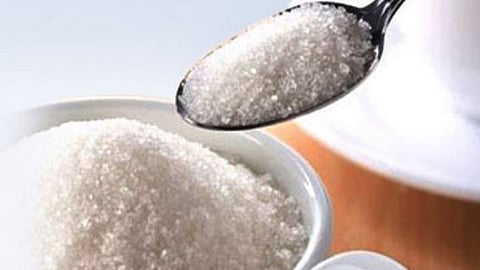

NEW DELHI: A coalition of India’s 29 leading public health and consumer organisations on Tuesday urged the centre to mandate front-of-pack warning labels on pre-packaged food and beverage products high in sugar, salt, and saturated fat (HFSS).
The leading public health leaders gave the call for warning labels, responding to the mounting evidence of health risks posed by HFSS and ultra-processed food (UPF) products.
Prof. K. Srinath Reddy, Honorary Distinguished Professor and Goodwill Ambassador of Public Health Foundation of India (PHFI) for Public Health Partnerships, who has been a longstanding voice in India’s public health landscape, said: “India cannot afford to wait while non-communicable diseases (NCDs) escalate and children become marketing targets.”
“Warning labels are simple, effective, and evidence-based,” he added.
The policy statement initiated by Nutrition Advocacy in Public Interest (NAPi) is endorsed by 28 organisations, including PHFI, Centre for Science and Environment (CSE), Indian Public Health Association (IPHA), Consumer VOICE, and Diabetes India. Patient groups like Kidney Warriors have also supported the statement.
Dr Arun Gupta, Convener of NAPi, a national think-tank on nutrition consisting of independent medical experts, paediatricians, and nutritionists, said: “Without mandatory warning labels, the public remains in the dark. Industry interests must not override children’s right to health.”
Quoting the Economic Survey, he added: “Globally, self-regulation has been ineffective. Stringent front-of-pack labelling rules are needed and must be enforced.”
The Supreme Court has also recently expressed concern over misleading and insufficient food labelling practices. The apex court in its order in April, directed the centre to amend the 2022 draft regulation within three months, stating food packets “have no information” and raised concern about products like Kurkure and Maggi.
According to the Indian Council of Medical Research-National Institute of Nutrition (ICMR-NIN) Guidelines, 2024 HFSS foods are defined as foods or diets that exceed recommended thresholds for added fat, sugar, or salt. These foods are typically energy dense, low in micronutrients and fibre, and are associated with increased risk of NCDs such as obesity, diabetes, hypertension, and cardiovascular disease, the statement said.
NAPi further said that Prime Minister Narendra Modi, in his Mann Ki Baat address, emphasised the critical need to raise awareness among children about their sugar consumption, how much they are eating and what they should ideally consume.
Earlier this year also, the prime minister had emphasised on reducing fat consumption to tackle the obesity crisis in India. He had suggested that such awareness would guide them toward healthier choices.
Warning labels on HFSS products do exactly that, they said.
The public health organisations said warning labels on HFSS food products is the need of the hour as India is witnessing an alarming rise in non-communicable diseases and related premature deaths.
As per national data, 28% of adults are overweight or obese, while one in four adults is diabetic or pre-diabetic. Alarmingly, 10% of 10–19-year-olds are pre-diabetic.
“Children are consuming increasing amounts of packaged foods high in sugar and salt, accelerating childhood obesity. As many as 54% of all deaths are linked to unhealthy diets,” the policy statement said.
Senior constitutional expert Rajeev Dhawan, Senior Advocate, Supreme Court, said: “Proper and accurate labelling of all pre-packaged food products is not only consumer protection and a right to know, it is part of the right to health and life.”
The policy statement called for mandatory warning labels (like High in Sugar) on the front of the pack; rejection of the 2022 draft “Star Rating” model, which is misleading and favours industry; labelling thresholds based on the 2022 Draft Regulation, WHO SEARO, or ICMR-NIN criteria; prohibition of marketing to children, including cartoons, celebrity endorsements, and health claims; transparent and time-bound regulation, with a 12-month compliance deadline; and protection of public health in trade negotiations involving food labelling standards.
Dr. Nupur Bidla, National Coordinator, Breastfeeding Promotion Network of India (BPNI) said the Supreme Court’s question, “You all have grandchildren?... the packets have no information”, highlights the urgent need to protect future generations. “We have urged the government of India to heed the apex court’s concern and mandate warning labels - not star ratings on all ultra-processed packaged foods/ HFSS.”
She said NAPi has also launched a public petition in support of this campaign.